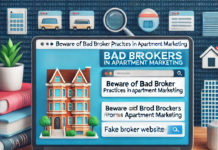This article was written by:
Matt Daigle, Digital Marketing Analyst.
Now, I’m a digital marketing specialist. Previously, I was an electrician, a blue-collar tradesman. Since my successful transition from the trades to marketing is because of the interesting employment background that allows me to excel in this new role, I wanted to share my key take-aways from transitioning into a job in digital marketing. In doing so, I hope to help others to make their own comparable career moves or learn from my own initial experiences in the field.
Although I worked in the trades, marketing was an ongoing passion. I had a business degree with MBA aspirations and participated in digital marketing internships, so I knew that digital marketing was constantly changing, continuously challenging and so much more complex than negotiating SEO, SEM, or social media engagement. I understood that once SEO professionals have some understanding of how to navigate Google’s search algorithm, the system changes. I was aware that Google is always reexamining how to crawl web pages and that the digital world had certainly evolved, since I last accessed WordPress or plugged keywords into Yoast. I turned my attention to learning about current best practices in the digital marketing field, and I hope sharing my own process will make it easier for others to find a digital marketing position or success in their current one.
SEO: Beyond the Blogs
In earlier digital days, keyword spamming in white font in the background of a webpage was common practice. As people started to have a basic understanding of search engine optimization (SEO), this facet of digital marketing probably seemed like a simple process: include a few keywords throughout your content that you want to rank for on Google, then you’ll appear at the top of the search engine results pages (SERPs).
How difficult could SEO and digital marketing really be?
With my initial understanding of SEO and prior experience in a related field, I wrote the occasional blogs with the provided keywords. I tried to use the best practices for blog writing with which I was familiar, including a 300 word minimum, proper formatting, the addition of title tags and meta descriptions, and keyword usage to account for 1-2% of the total word count.
As businesses were trying to navigate the pandemic, I was hired for a digital marketing position, which focused on improving my company’s search rankings and online presence in order to ensure its survival and growth. The work began with the creation of a multifaceted approach to the SEO content strategy that went far beyond my earliest experience of simply writing blogs.
To achieve the objective for which I was hired, I immersed myself in the world of keyword research. A task that is both arduous and periodically fun, finding one high value keyword might take hours. Deep dives into competitors’ keyword usage and subsequent comparisons to my company’s keyword selections and content were part of the keyword searching, identification, and planning process. This investigation revealed high value search terms that our customers were using daily. With just this one example of keyword auditing and research, it’s important to understand that nuanced evaluation and commitment are necessary for this kind of digital marketing work. While brainstorming and research are only the beginnings of any SEO content strategy, the time and effort that is put into keyword research significantly impacts the value and impact of content derived from it.
Accordingly, as I moved away from prescribed keywords and blog writing to owning and implementing effective keyword research practices, I set myself up for success in the content development efforts and strategic planning that followed. The reward for my concerted exploration and finely tuned evaluation of our content and that of our competitors enabled me to determine our current standing and impact of our digital presences and to propose how we could improve upon our ranking and reach.
As you pursue a job in digital marketing, consider these two take-aways from my initial work with on-page SEO and content development:
1) Recognize that effective digital marketing does not rely on a single content type, such as a blog.
2) Invest in continuous education about SEO best practices and evolving content types, both generally and specifically as relevant to your business or field.
Increase Your Marketing Game by Going Off Page with SEO
As I quickly learned, on-page SEO is labor-intensive but relatively straightforward. Although the company soon saw benefits of improved SEO content strategies from the updated keyword research and evaluation, including lead generation and overall site reach and engagement, the continued success of our digital marketing efforts (and the related success of any potential digital marketing professional) requires awareness of more than one tactical approach. Just as blogs are not the only effective keyword-driven content, effective SEO does not only stem from on-page tactics and content quality. There are always ways to better your rankings, and off-page tactics are also important to overall success.
Off-page SEO can impact rank improvement, post generation on other sites, and more. To excel in the game of SEO, every digital marketer needs to know how the game itself, as well as its many interrelated components, may be changing. In my experience, this continued desire to grow my skill set brought me to backlinks.
Crucial to the success of any SEO campaign, backlinks show how trustworthy a search engine finds a particular source. When a site has many backlinks, search engines recognize the innate value of the information and its reliability and validity within the particular niche or community. Backlinks fall into two categories: dofollow and nofollow. Since dofollow are the backlinks that positively impact search ranking, let’s focus on those.
Backlinks are critical to SEO success, and there are two sources that can be used almost daily to search for and try to secure these links: free or low-cost business directories and guest post opportunities. Since my industry (roofing) is so small, generating backlinks through citations and goodwill posts is a less fruitful opportunity than it is in other industries. As noted, business directories are easy ways to generate backlinks, but these directories can be hard to find after the easily searched ones on Google have been accessed. Consequently, finding quality backlinks distinguishes a good SEO campaign from a great one. Locating and engaging the more obscure directories adds backlinks and domain authority to search rankings.
As you continue to grow in your role as a digital marketer or are hoping to get a job in the digital marketing field, your willingness to commit, as needed in keyword research, must be accompanied by the unflagging desire to learn. Consider how you might address these qualities in your interview or apply them in your work to explore online resources or other supports to help you further hone your digital marketing craft, as I did in educating myself about off-page tactics, like backlinks.
Review This!
If “content is king” and driven by SEO, then customization of your SEO must take the role of royal advisor. As I have learned since starting my new role, there are so many different facets to SEO to learn, which I’ve organized into on-page and off-page revelations and discussed in brief. However, it is also important to understand that every SEO approach should be tailored to your particular business or brand. Returning to the blog example, for some businesses, this type of content works well. For others, like smaller businesses, local SEO and reviews may have a greater impact on their overall success, since reviews both help with SEO and support the assessment of Google and potential customers as to the trustworthiness of the website and business.
Consider how your business can benefit from a customized campaign! A review generation plan, for example, can pay dividends in terms of future success for many different reasons. Since Google is the main search engine, focus your review generation here. As I discovered and is often the case in refining any professional or personal craft , this is a labor-intensive process. As anyone who has used a service or read reviews is aware, not every customer leaves reviews (in fact, the majority do not) and sometimes the less beneficial reviews may seem more frequent. Still, local SEO efforts can really pay off!
As local business directories can help SEO through backlink determination, Google My Business (GMB) is the “golden goose” of directories for digital marketers and customized, niche-specific representation. Most notably, GMB is FREE! Since such a powerful resource can be used for free, engaging it should certainly be one of the digital marketer’s first moves in optimizing their organization’s SEO. Start with Google’s own in-house blogs to guide your approach to the GMB.
It’s true that there are so many ways in which your digital marketing efforts may seem like a discouraging effort in futility or that results may not always be apparent. Those who desire to excel in or become part of the digital marketing field need to remember to stay invested (as in the keyword research journey), continue to learn (both on and off page strategies), and reap the benefits of customization opportunities beyond audience and competitor awareness.
Social Media: More than Photos, Trends, and Likes
Most people understand the basic premise of SEO once it is explained to them, but so many more understand the possibilities and potential of social media because of their own use. Since people either in the field or planning to move into the profession of digital marketing have personal experience, if not some engagement with professional social media applications, negotiating social media for SEO purposes may seem like the easiest transition from any industry or role. After all, isn’t a catchy phrase or keyword coupled with eye-catching pictures or the latest TikTok trend enough to gain the views and likes of an audience? While this approach might work for a high recognition brand, small businesses need to focus more on the communication and connection functions of social media to achieve their objectives. For smaller and local brands, social media engagement should focus on facilitating discussion, creating loyalty, and gaining recognition within the community. Again, this labor-intensive approach necessitates constant monitoring and engagement across a wide variety of different local pages from area nonprofits to beloved restaurants. If your potential customer follows these websites or pages, then your social media presence should create engagement and foster relationships with them too.
This “local and social” approach shows both current and potential customers the involvement and recognition of your business within the community. From simple likes to show your support to shared presence at an event to sharing posts or local happenings, these efforts bring attention to your brand or organization and expand your potential reach. Unless you are an e-commerce brand, social media moves are more about driving awareness and increasing traffic than revenue. However, in a similar fashion to a company blog, digital marketers create a voice for their organization and establish the company’s authenticity through its social media presence. As appropriate and purposeful to your business, choose a tone that conveys who you are and who you want to be in that community.
This part of enhancing the company’s digital presence may have been the easiest part of your early days in the field or in the upcoming interview where you will likely be asked about social media use, as specific to this component of digital marketing. Considering the value of social media engagement also provides the opportunity to reinforce a piece to the digital marketing puzzle that should be the seed of any digital marketing plan: the company’s mission – what your company is about and what they have to offer their intended audience.
Final Take-Aways and Next Steps for a Job in Digital Marketing
As I share these experiences and discoveries here and am just a short time into my new digital marketing career, I have already learned so much from industry experts like Moz and Hubspot as well as the successes achieved and mistakes made in my own experiences thus far. My journey as a digital marketer is far from over, and like so much in life, SEO and digital marketing in general are in constant evolution. With flexibility, adaptability, and a continuous desire to learn, I am excited to continue in the digital marketing field and see what the coming years will bring for both the profession and the companies with which I work. Although the work of a digital marketer is often slow, difficult, and labor-intensive, I hope that my current and future digital marketing colleagues will share the same pride that I have in witnessing projects come to fruition and show positive net gains.
As you consider your own transition into digital marketing, learn from my journey and educate yourself about the tactical approaches to SEO and content development. For your efforts and investment, you’ll not only create a place for yourself in this new field but also be an asset to your current or future employer.
Matt Daigle is the digital marketing analyst at Ranch Roofing. Previously, he was an electrician with an interest in digital marketing.





